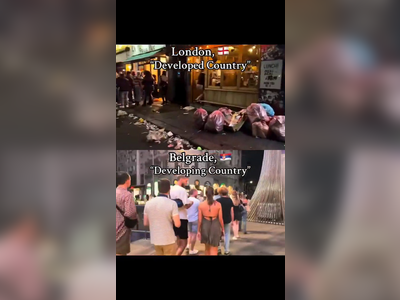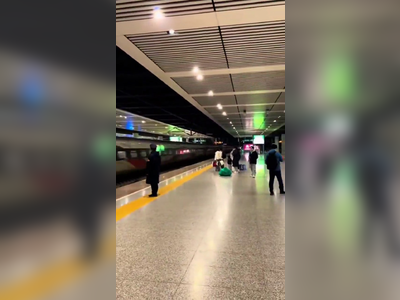UK Unveils Sweeping Asylum Reforms with 20-Year Settlement Wait and Conditional Status
New measures extend the path to permanent residency, suspend automatic rights for refugees and threaten visa restrictions for non-co-operating countries.
The United Kingdom has announced a comprehensive overhaul of its asylum system, designed to deter illegal migration and restore public confidence in the borders regime.
Under the proposals, refugees granted protection will no longer receive automatic indefinite leave to remain; instead they must reapply every two and a half years and await up to twenty years before qualifying for settlement.
The reforms also strip the automatic right to housing and financial support for asylum seekers, making those benefits discretionary when individuals are capable of work or have assets.
Countries such as Angola, the Democratic Republic of Congo and Namibia now face potential visa suspensions unless they cooperate with the UK on returns of failed asylum applicants.
Home Secretary Shabana Mahmood described the measures as “the most significant package to tackle illegal migration in modern times,” framing them as a necessary response to the surge in small-boat crossings and strain on public services.
The changes are modelled in part on Denmark’s temporary-protection framework, with temporary status lasting thirty months before review and settlement dependent on “earned” contributions.
Labour Prime Minister Keir Starmer said the reforms reflect a shift from relying on externalisation strategies to reasserting national control over the immigration system.
The government also plans to regularise reviews of whether home countries have become safe, allowing for repatriation of formerly protected persons when conditions improve.
Critics—including refugee advocacy groups—warn the timeline and conditionality may undermine integration and family reunion, and could lead to increased use of illicit migration routes or push asylum seekers into destitution.
Supporters however argue the policy aligns the UK with major developed nations and addresses longstanding public concern over uncontrolled migration and system backlogs.
The package forms part of next year’s legislative agenda and may feature in the King’s Speech, ahead of detailed regulations and implementation arrangements in parliament.
Under the proposals, refugees granted protection will no longer receive automatic indefinite leave to remain; instead they must reapply every two and a half years and await up to twenty years before qualifying for settlement.
The reforms also strip the automatic right to housing and financial support for asylum seekers, making those benefits discretionary when individuals are capable of work or have assets.
Countries such as Angola, the Democratic Republic of Congo and Namibia now face potential visa suspensions unless they cooperate with the UK on returns of failed asylum applicants.
Home Secretary Shabana Mahmood described the measures as “the most significant package to tackle illegal migration in modern times,” framing them as a necessary response to the surge in small-boat crossings and strain on public services.
The changes are modelled in part on Denmark’s temporary-protection framework, with temporary status lasting thirty months before review and settlement dependent on “earned” contributions.
Labour Prime Minister Keir Starmer said the reforms reflect a shift from relying on externalisation strategies to reasserting national control over the immigration system.
The government also plans to regularise reviews of whether home countries have become safe, allowing for repatriation of formerly protected persons when conditions improve.
Critics—including refugee advocacy groups—warn the timeline and conditionality may undermine integration and family reunion, and could lead to increased use of illicit migration routes or push asylum seekers into destitution.
Supporters however argue the policy aligns the UK with major developed nations and addresses longstanding public concern over uncontrolled migration and system backlogs.
The package forms part of next year’s legislative agenda and may feature in the King’s Speech, ahead of detailed regulations and implementation arrangements in parliament.









